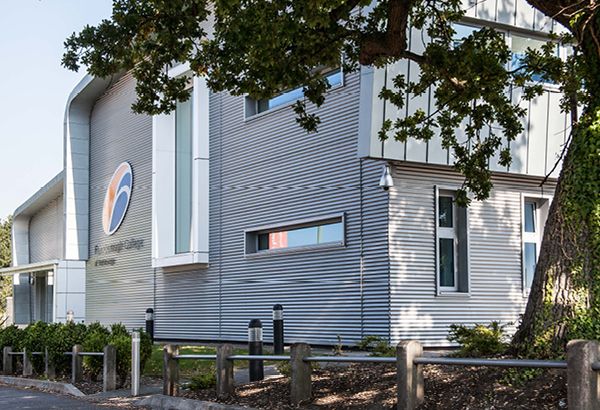Overview
About the course
Engineering Operatives are predominantly involved in engineering operations which are key to the success of the Manufacturing and Engineering sector allowing employers to grow their business while developing a work force with the relevant skills and knowledge to enhance the sustain the sector.
The role covers a wide range of common and job specific skills sets that can be transferred across the manufacturing engineering industry sectors during the course of their careers. Dependent on the sector that they are employed in there may be subtle differences in terms of composition and application of the job role specific skills and knowledge they will require, however the core skills and knowledge will be the same regardless of the sector/area they work in.
Engineering Operatives will have clear reporting lines with anything outside their role and responsibility. They will work individually or as part of a team to carry out a range of engineering operations which could include ensuring machines and equipment used are maintained and serviceable, dealing with breakdowns, restoring components and systems to serviceable condition by repair and replacement; operating a variety of machines (CNC or Conventional); assembling and repairing machine and press tools, dies, jigs, fixtures and other tools; fabrication/installation of a wide variety of other sheet fabrications and equipment and; fabrication and assembly of metal parts joining techniques; preparing materials and equipment for engineering processes, providing technical support including communications software, test tools, performance, capacity planning, and e-commerce technology as required.
Engineering Operatives must comply with statutory regulations and organisation safety requirements including any environmental compliance procedures and systems; Identify hazards and hazardous situations; Prepare the work area and equipment; Obtain and follow the appropriate job documentation and work instructions; Extract the necessary data and information from specifications and related documentation; Carryout the engineering activities in line with their job role; Carry quality checks as required; working with minimum supervision either individually or as part of a team and will be responsible for their own actions and for the quality and accuracy and timely delivery of the work they undertake.
Examples of the occupational roles from across the engineering and manufacturing sector that would be covered within this standard are: Servicing and maintenance operative; Machine setter/operative; Mechanical engineering operative; Fabricator; Engineering fitter; Multi-disciplined engineering operative; Materials, processing and finishing operative, Technical Support operative, founding/casting operative.
Contact Us
If you have any questions about this course then please contact us by phone on 01252 40 55 55 or message us.
Your course
What modules are covered?
The programme covers a range of Knowledge, Skills and Behaviours:
1. Core Knowledge:
Core Knowledge modules include:
- How to obtain the necessary job instructions, engineering drawings and specifications and how to interpret them
- Relevant statutory, quality, environmental compliance procedures/systems, organisational and health and safety regulations relating to engineering operations
- Individual role and responsibilities within the organisation and the flexibility required to support the achievement of company targets
- Engineering operational practices, processes and procedures
- Potential problems that can occur within the engineering operations and how they can be avoided
Knowledge modules will be taught in college one day per week. Further specialist modules will need to be completed to achieve this qualification.
2. Core Skills:
Core Skills modules include:
- Work safely at all times, complying with health and safety legislation, regulations, environmental compliance procedures and systems and other relevant guidelines
- Identify and deal appropriately with any risks, hazards, hazardous situations and problems that may occur within the engineering environment within the limits of their responsibility
- Demonstrate effective communication skills which include oral, written and electronic
- Complete appropriate documentation accurately, efficiently and legibly using the correct terminology where required
- Obtain and follow the correct documentation, specifications and work instructions in accordance with time constraints and the roles and responsibilities identified for the engineering activities, extracting the necessary data/information from specification and related documentation
- Select and use appropriate tools, equipment and materials to carry out the engineering operation
- Deal appropriately with any problems that may occur within the manufacturing environment within the limits of their responsibility
- Work efficiently and effectively at all times maintaining workplace organisation and minimising waste
You will need to produce a portfolio demonstrating these skills, we will assist you with this. Further specialist modules will need to be completed to achieve this qualification.
3. Functional Skills: English & Maths Level 1 to be achieved and attempt level 2 (if required)
4. You will be taught about expected behaviours for the industry and general employment.
5. End point assessment is the final stage of your apprenticeship and you must pass this to achieve your apprenticeship. It is the chance to show the skills, knowledge and behaviours you have gained throughout you apprenticeship.
What are the benefits?
Apprenticeships are a proven way of increasing staff retention and productivity. 92% of employers who employ apprentices believe that Apprenticeships lead to a more motivated and satisfied workforce. Apprenticeships enable employers to recruit and train the employees to meet the specific needs of their business.
Your future
What Next?
Completing this apprenticeship will give you the opportunity to progress onto a Level 3 Engineering Fitter Apprenticeship Standard
Entry Requirements
What previous qualifications and experience will I need?
You must be aged 16 and over with 5 GCSEs A* - C / 9 - 4 including Maths and English or equivalent.
Ask a Question
Course Enquiry
Please contact us through the form below. After submitting a form we will contact you as soon as possible. We will delete your information one month after the beginning of the next academic year.
Apply
Apply
You can apply for this course online.







